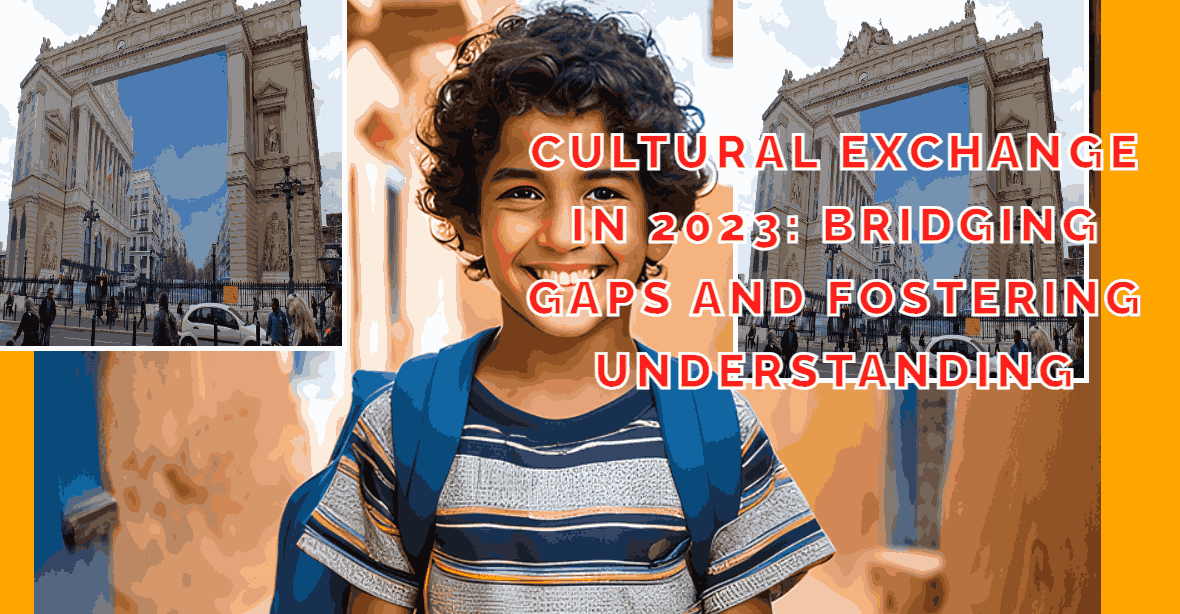
Cultural exchange plays a pivotal role in enhancing global understanding and collaboration among diverse communities. In 2023, the landscape of cultural exchange is shaped by technological advancements, educational initiatives, and an emphasis on inclusivity, all while navigating contemporary challenges.
The Role of Technology in Cultural Exchange
1. Social Media Platforms
Social media has transformed how cultures interact and share experiences. Platforms like Instagram, TikTok, and Twitter enable users to showcase their cultural practices, traditions, and artistic expressions. This democratization of content allows individuals to engage with and appreciate cultures from around the world, fostering dialogue and cross-cultural understanding. Viral trends often emerge that highlight cultural nuances, sparking conversations and encouraging exploration.
2. Virtual Reality (VR)
VR technology offers immersive experiences that transcend geographic limitations. Users can take virtual tours of museums, historical sites, and cultural landmarks, enhancing their understanding of different cultures in an engaging manner. For instance, VR can simulate traditional ceremonies or festivals, providing firsthand experiences of cultural practices without the need for physical travel. This innovation helps make cultural education accessible to a broader audience.
Educational Initiatives and Global Programs
1. Student Exchange Programs
In 2023, educational institutions are increasingly expanding student exchange programs. These initiatives allow students to live and study in different countries, providing them with firsthand experiences of diverse cultures. Such exchanges not only foster global citizenship but also equip students with valuable cross-cultural communication skills, preparing them for a more interconnected world.
2. Cultural Workshops and Festivals
Cultural workshops and festivals serve as platforms for celebrating diversity through food, music, dance, and art. These events educate participants about various cultures and promote community cohesion. By engaging in cultural activities, individuals can appreciate the richness of different traditions and build relationships with people from varied backgrounds.
Challenges in Cultural Exchange
1. Cultural Appropriation vs. Appreciation
The debate surrounding cultural appropriation highlights the need for sensitivity and respect when engaging with other cultures. It’s essential to understand the difference between appropriation—often involving the unacknowledged or inappropriate adoption of cultural elements—and genuine appreciation. Awareness of these nuances is crucial for fostering meaningful exchanges and avoiding harm to marginalized cultures.
2. Political Tensions
Geopolitical issues can hinder cultural exchange by limiting opportunities for direct engagement. Travel restrictions, diplomatic conflicts, and nationalistic sentiments can create barriers that prevent people from experiencing and sharing cultures. Navigating these challenges requires creativity and resilience, often pushing cultural exchanges to adapt to virtual platforms or indirect forms of engagement.
The Importance of Inclusivity
Inclusivity is a central theme in contemporary cultural exchange efforts:
1. Community-Based Programs
Local organizations are increasingly involved in promoting cultural exchange within their communities. By ensuring that diverse voices are represented and amplified, these programs help create a sense of belonging and mutual respect. They encourage dialogue among community members, fostering understanding and solidarity.
2. Digital Platforms for Minority Voices
Online platforms dedicated to minority cultures provide spaces for sharing unique perspectives. These platforms promote dialogue about identity and heritage, allowing marginalized communities to tell their stories and share their cultural practices. This visibility is essential for fostering empathy and understanding among broader audiences.
Conclusion
Cultural exchange in 2023 is a dynamic and multifaceted process significantly influenced by technology, education, and a commitment to inclusivity. As the world grapples with challenges related to identity, social cohesion, and political tensions, fostering meaningful cultural exchange remains essential for building understanding and solidarity among diverse communities. By embracing cultural diversity and promoting engagement, we can create a more connected and empathetic world, ultimately enriching our collective human experience.
References
American Council on Education (ACE). (2023). The Future of International Education: Trends and Innovations. Retrieved from ACE
UNESCO. (2023). Global Education Monitoring Report 2023: Education for Sustainable Development. Retrieved from UNESCO
Pew Research Center. (2023). The State of Social Media in Cultural Exchange. Retrieved from Pew Research
 English EN
English EN  Indonesia ID
Indonesia ID
